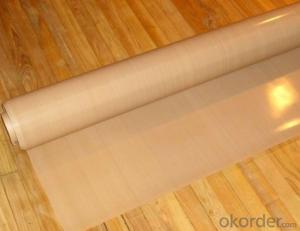Fiberglass mats have been a staple in various industries for decades, offering a versatile and durable solution to a wide range of applications. From construction to automotive, these mats have proven their worth time and time again. But what exactly are fiberglass mats, and how are they used in industrial and commercial settings? Let’s dive in and explore the world of fiberglass mats.
The Wonders of Fiberglass Mats
Fiberglass mats are made from woven glass fibers, which are then bonded together with a resin. This creates a strong, lightweight, and flexible material that can withstand high temperatures, chemicals, and various other harsh conditions. The versatility of fiberglass mats makes them ideal for a variety of applications, from reinforcing concrete to providing insulation in industrial settings.
Construction and Infrastructure
One of the most common uses of fiberglass mats is in the construction industry. They are used to reinforce concrete, creating a stronger and more durable structure. Fiberglass mats can also be found in roofing materials, providing a waterproof and long-lasting solution for commercial buildings.
Automotive and Transportation
In the automotive industry, fiberglass mats are used to create lightweight and strong components. They are often used in the production of car bodies, hoods, and trunks, as well as in the manufacturing of buses and trucks. The lightweight nature of these mats helps to improve fuel efficiency and reduce emissions.
Electrical and Electronics
Fiberglass mats are also used in the electrical and electronics industry for their insulating properties. They are used to create insulators for high-voltage power lines and electrical panels, ensuring safety and preventing electrical faults.
Chemical and Corrosion Resistance
The chemical resistance of fiberglass mats makes them ideal for use in chemical plants and other environments where exposure to harsh chemicals is common. They can be used to line tanks, create protective barriers, and provide a durable surface that can withstand corrosive substances.
Agriculture and Horticulture
Fiberglass mats have found their way into agriculture and horticulture as well. They are used to create walkways, provide support for plants, and even as a growing medium for hydroponic systems. The durability and resistance to water and chemicals make them a popular choice in these industries.
Customization and Versatility
One of the key advantages of fiberglass mats is their ability to be customized to fit specific needs. They can be cut, shaped, and molded to fit a wide range of applications, making them a popular choice for both large-scale and small-scale projects.
The Future of Fiberglass Mats
As technology continues to advance, the use of fiberglass mats is expected to grow. With their strength, durability, and versatility, these mats are poised to play an even more significant role in various industries. From new construction techniques to innovative applications in technology and beyond, the possibilities are endless.
In Conclusion
Fiberglass mats have come a long way since their inception. They have proven to be an invaluable resource in numerous industries, providing strength, durability, and flexibility where it’s needed most. As we look to the future, it’s clear that the demand for fiberglass mats will only continue to grow. Whether you’re in construction, automotive, or any other industry, these mats are a reliable and efficient solution to many challenges.

